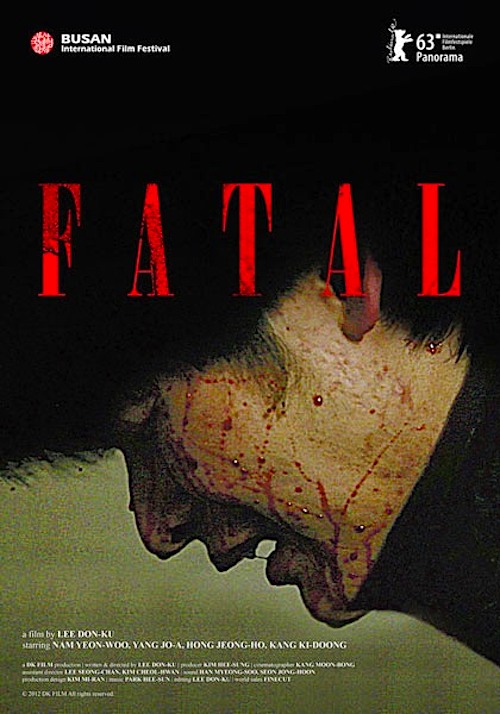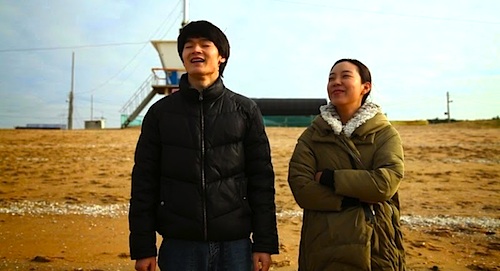 By Joe Bendel. It is impossible to make broad generalizations about the depiction of Christianity in Korean cinema. Yes, there are the crude stereotypes and kneejerk jibes, but there are also rather nuanced and humanistic portrayals, as well. For a recovering sex crime victim, it is a source of comfort and life affirmation. Unfortunately, the consolation of faith will be overwhelmed by the lingering corrosiveness of sin in Lee Don-ku’s Fatal, which screens this Wednesday as part of the Asia Society’s free Korean Movie Night series, co-presented by the Korean Cultural Service in New York.
By Joe Bendel. It is impossible to make broad generalizations about the depiction of Christianity in Korean cinema. Yes, there are the crude stereotypes and kneejerk jibes, but there are also rather nuanced and humanistic portrayals, as well. For a recovering sex crime victim, it is a source of comfort and life affirmation. Unfortunately, the consolation of faith will be overwhelmed by the lingering corrosiveness of sin in Lee Don-ku’s Fatal, which screens this Wednesday as part of the Asia Society’s free Korean Movie Night series, co-presented by the Korean Cultural Service in New York.
Never very smart or self-assertive, the conflicted Lee Sung-gong meekly stands by while his classmates rape a teen-age girl one-by-one in the adjoining room. When told to take his turn, Lee duly enters. Just what he does or does not do to the drugged woman is never fully revealed. However, his guilt and complicity are firmly established. In fact, the incident will constantly haunt Lee, even though he continues to crave the approval of the sociopathic ringleader Gyu-sang, a decade later.
More out of boredom than spiritual yearning, Lee attends an Evangelical Christian service, but is struck by the church’s welcoming reception of visitors. Joining a young members’ study group, he comes face-to-face with Park Jang-mi, the victim from ten years ago. However, either due to the effects of the date-rape drugs or the suppression of memories, Park does not recognize him. Immediately obsessed with her, Lee stalkerishly follows her, contriving ways to worm into her life. It actually seems to work for a while, but Lee’s repressed emotions will come crashing out during the group’s retreat. Not knowing any other way to “fix” what they have done, the destabilized Lee starts to get Biblical with the unrepentant rapists.
Yes, this is strong stuff, especially given the unvarnished realism of director Lee’s stylistic approach. The one exception is the masterfully intense “confession” sequence during the retreat, in which you can practically see Lee Sung-gong’s psyche shatter on-screen. Fatal is a very unsettling film that never lets its problematic central character off the hook. It has been described as a revenge drama, but it does not fit comfortably into any category. It is just too raw and too intimate.

As Park, Yang Jo-a is a revelation. She sets the screen on fire during the film’s centerpiece scene. Audiences will not be able to breathe, let alone fidget. It is that kind of riveting. Yet, her earnestness and vulnerability throughout the film is also deeply moving. Likewise, Nam Yeon-u quietly but forcefully conveys just how deeply Lee’s guilt has arrested his psychological development. You can see he is just a shell of a person.
The third act mayhem might sound like a commercial concession, but every step feels like it follows according to a grimly fatalistic logic. It is a power film and a sit-up-and-take-notice debut for its director and much of the cast (especially Yang), but it not for the faint of heart or the overly sheltered viewer. Visceral and downright draining, Fatal is recommended for those who appreciate unsweetened black coffee drama, when it screens this Wednesday (5/13) at New York’s Asia Society.
LFM GRADE: A-
Posted on May 12th, 2015 at 10:51pm.